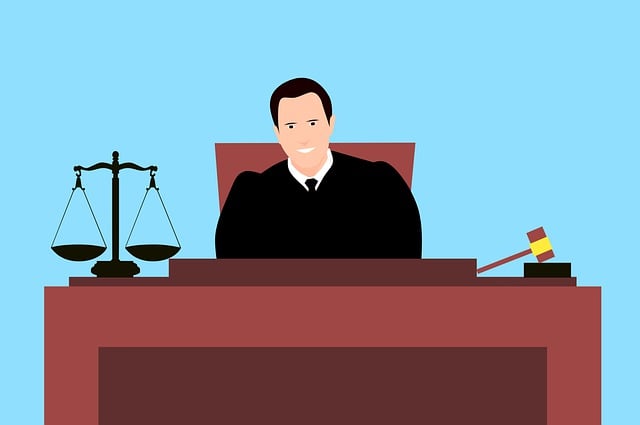Understanding the legal framework, particularly the Fair Credit Reporting Act (FCRA), is essential for organizations conducting background checks to ensure fairness, accuracy, and respect for individual privacy. Compliance with FCRA and relevant privacy laws prevents legal issues, builds trust, and guarantees that personal data is handled responsibly, maintaining a balance between security and privacy rights.
Navigating the legal aspects of criminal record checks is essential for organizations conducting background screenings. This comprehensive guide explores the intricate web of background check laws, focusing on the legal framework that governs these processes. We delve into the FCRA (Fair Credit Reporting Act) as a pivotal player, balancing the need for accurate information with individual privacy rights. Additionally, we scrutinize compliance and privacy laws crucial for ethical practices, followed by an in-depth look at legal requirements for efficient background checks, ensuring both effectiveness and adherence to the law.
- Understanding the Legal Framework of Background Checks
- FCRA (Fair Credit Reporting Act): A Key Player in Background Check Laws
- Compliance and Privacy Laws: Protecting Individual Rights During Checks
- Legal Requirements for Conducting Efficient Yet Ethical Background Checks
Understanding the Legal Framework of Background Checks

Understanding the legal framework surrounding background checks is paramount for individuals and organizations alike. The Fair Credit Reporting Act (FCRA) serves as a cornerstone in this domain, dictating how consumer reporting agencies, employers, and other entities conduct and utilize background checks. This legislation ensures that such checks are conducted with fairness, accuracy, and respect for individual privacy rights.
Compliance with FCRA and other relevant privacy laws is essential to avoid legal repercussions. Background check laws vary across jurisdictions, but they generally mandate transparency in the process, proper authorization from individuals being checked, and strict handling of sensitive data. Understanding these legal aspects not only safeguards personal privacy but also fosters trust in organizations conducting background screenings.
FCRA (Fair Credit Reporting Act): A Key Player in Background Check Laws

The Fair Credit Reporting Act (FCRA) is a pivotal legislation in the realm of background check laws, establishing guidelines for consumer reporting agencies and ensuring fairness and accuracy in credit reporting. In the context of legal aspects of background checks, FCRA plays a crucial role in governing how information is collected, used, and disclosed. This act mandates that consumer reporting agencies adhere to strict privacy laws, implementing robust security measures to protect sensitive data. Compliance with FCRA is essential for organizations conducting background checks as it safeguards individuals’ rights against potential misuse of their personal information.
FCRA outlines specific legal requirements for background check processes, including the obtainment of written consent from individuals before accessing their credit reports and placing them under investigation. It also entitles consumers to challenge inaccurate or unverified information in their reports. By adhering to FCRA regulations, organizations can ensure that their background check practices are not only compliant but also respectful of individual privacy rights, fostering trust in the overall process.
Compliance and Privacy Laws: Protecting Individual Rights During Checks

When conducting criminal record checks, organizations must adhere to a stringent web of compliance and privacy laws designed to safeguard individual rights. These regulations, such as those set forth by the Fair Credit Reporting Act (FCRA) in the United States, govern how personal information can be collected, used, and disclosed during the check process. Non-compliance can result in significant legal repercussions, including financial penalties and damage to the organization’s reputation.
Background check laws are designed to ensure that employers, landlords, and other entities use these checks responsibly, only for legitimate purposes, and with the individual’s knowledge and consent. They also outline specific requirements for maintaining accurate records, securely storing data, and providing individuals with access to their information. Compliance in background checks is not just a legal necessity; it fosters trust between organizations and the public, demonstrating a commitment to ethical practices and respect for privacy rights.
Legal Requirements for Conducting Efficient Yet Ethical Background Checks

When conducting criminal record checks, it’s paramount to understand and adhere to a robust set of legal requirements that ensure both efficiency and ethical practices. These regulations are designed to protect individuals’ privacy rights while facilitating fair and accurate assessments for various purposes such as employment, housing, or licensing. Compliance with background check laws, like the Fair Credit Reporting Act (FCRA) in the United States, is crucial. The FCRA outlines strict guidelines on how consumer reporting agencies, including those handling background checks, must operate to safeguard sensitive data.
Beyond the FCRA, various privacy laws govern the legal requirements of background checks. These laws vary across jurisdictions but generally mandate that organizations obtain informed consent before accessing an individual’s criminal history, ensure the accuracy and relevance of the information collected, and limit the dissemination of such records to authorized parties only. Strict adherence to these legal aspects not only helps in avoiding legal repercussions but also fosters trust and confidence among individuals undergoing background checks.
